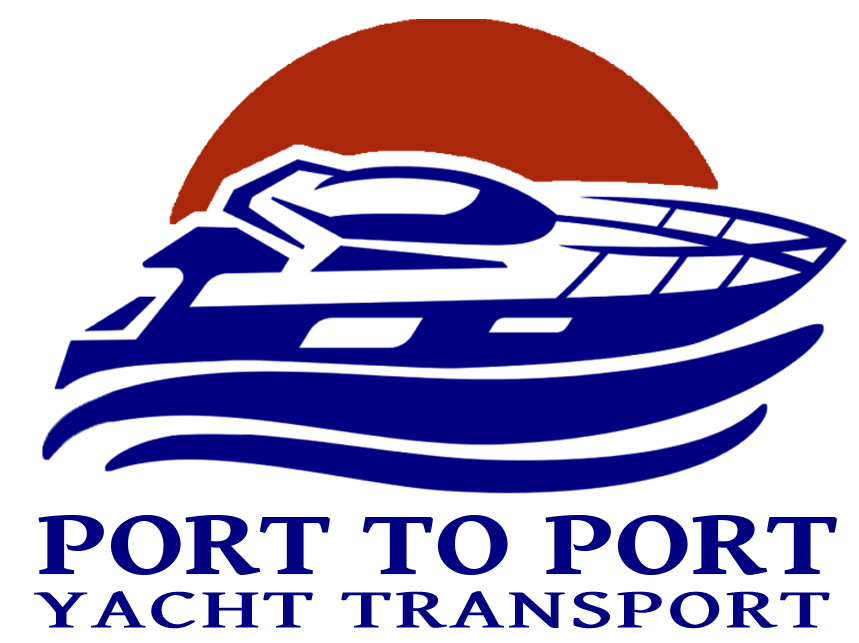Table of Contents
Toggle Valuable FAQ’s for Transporting Your Boat or Yacht
Valuable FAQ’s for Transporting Your Boat or Yacht
Transporting a boat or yacht can be a daunting task. Whether you’re moving your vessel to a new location, bringing it to a boat show, or delivering it to a customer, you’re bound to have questions about the process. To help you navigate the world of boat and yacht transportation, we’ve compiled a list of valuable frequently asked questions (FAQs) to provide you with the information you need for a smooth and stress-free experience.
1. Valuable FAQ: How Do I Prepare My Boat or Yacht for Transport?
Proper preparation is key to ensuring a safe and secure transportation process. Some essential steps to prepare your boat or yacht include:
-
Cleaning: Thoroughly clean the vessel, including the exterior and interior. This helps prevent the spread of contaminants and ensures it arrives in pristine condition.
-
Inventory: Create an inventory of all items on board, securing loose objects to prevent damage during transit.
-
Documentation: Ensure all necessary documentation, such as registration, insurance, and permits, is in order and readily accessible.
-
Systems: Safeguard the vessel’s systems by disconnecting batteries, draining water tanks, and securing all movable parts.
2. Valuable FAQ: Can I Transport My Boat or Yacht on My Own? 
While it’s possible to transport a smaller boat using a trailer and a capable vehicle, larger vessels and yachts typically require professional transport services. Specialized equipment, permits, and experience are needed to ensure the safe transport of larger vessels. Attempting to transport a large boat or yacht without the right expertise can lead to damage, accidents, or costly complications.
3. Valuable FAQ:How Do I Choose a Boat or Yacht Transport Company?
Selecting the right transport company is crucial. Here are some factors to consider:
-
Experience: Look for a company with a proven track record in transporting boats and yachts. Experience often equates to reliability and expertise.
-
Insurance: Ensure the transport company has appropriate insurance coverage to protect your vessel during transit. Check to make sure they have cargo insurance that is 1. in your name 2. will cover the cost to replace or repair your boat. Accidents do happen. Remember we share the roads with the same people your drive to work with everyday. Think about that!
-
Equipment: The company should have the necessary equipment to handle your specific type of boat or yacht. Different vessels may require different transport methods.
-
Permitting and Regulations: A reputable company should be well-versed in permitting and regulations for transporting boats and yachts, which vary by state and vessel size.
-
References: Request references and reviews from past clients to gauge the company’s reputation.
4.Valuable FAQ: What Are the Common Types of Boat and Yacht Transport?
Boat and yacht transport can be divided into several categories, including:
-
Overland Transport: This involves moving your vessel over land, typically via a trailer and specialized equipment.
-
Ocean Transport: For longer distances, vessels may be transported on the water, either by the owner or a professional captain.
-
Container Transport: Smaller boats can be shipped in containers aboard cargo vessels.
-
Air Transport: In some cases, smaller boats can be transported by air on specialized cargo planes.
5. Valuable FAQ: How Much Does Boat or Yacht Transport Cost?
The cost of transportation varies based on several factors, including the size and weight of the vessel, the distance to be covered, the mode of transport, and the specific services required. It’s advisable to obtain quotes from multiple transport companies to compare prices and services.
6. Valuable FAQ:Are There Any Restrictions on the Size of Vessels That Can Be Transported?
The size of vessels that can be transported depends on the equipment and permits available to the transport company. Generally, vessels up to a certain size can be transported overland, while larger vessels may require specialized transport methods, such as ocean transport.
7. Valuable FAQ:Do I Need Special Permits for Boat or Yacht Transport?
Yes, permits are often required for the overland transport of boats and yachts. The specific permits needed depend on factors such as the vessel’s size, weight, and the routes involved. A professional transport company should be well-versed in obtaining the necessary permits on your behalf.
8. Valuable FAQ:How Long Does Boat or Yacht Transport Take?
The duration of transport can vary widely, depending on the distance, route, and mode of transport. Overland transport within the same state might take a few days, while long-distance ocean transport can take several weeks. It’s essential to discuss the estimated timeframe with your chosen transport company to plan accordingly.
9. Valuable FAQ: How Can I Ensure the Safety of My Boat or Yacht During Transport?
Safety is a top priority when transporting valuable vessels. To ensure the safety of your boat or yacht:
-
Choose a Reputable Transport Company: Pick a company with a solid track record of safety and security during transportation.
-
Secure Loose Items: Make sure all loose items on your vessel are properly secured to prevent damage during transit.
-
Use Specialized Cradles and Blocks: Depending on the vessel’s shape and size, custom cradles and blocking systems may be necessary to ensure stability during transport.
-
Monitor the Transport: If possible, monitor the transport in real-time through tracking systems or regular communication with the transport company.
10. Valuable FAQ: What Happens if My Boat or Yacht Is Damaged During Transport?
While it’s rare, accidents or damage can occur during transportation. Port to Port Yacht transport provides an insurance certificate in the owners name that certifies your coverage. Port-Port.Com has your boat insured as cargo insurance to 1 million dollars. CHECK WITH ANY TRANSPORTER ABOUT THEIR CARGO INSURANCE- ITS A WAY OF CUTTING COST IS NOT INSURING YOUR BOAT AS CARGO. YOUR BOAT IS NOT COVERED UNLESS THE TRANSPORT PROVIDES A CARGO POLICY WITH YOUR NAME ON IT. It’s also advisable to document the condition of your vessel before and after transport for insurance claims. We take pictures of your boat prior to moving the vessel and at the time of delivery.
In conclusion, the process of transporting a boat or yacht can be complex, but with the right information and a reputable transport company, it can be a seamless experience. By understanding the various aspects of boat and yacht transport, you can make informed decisions to ensure the safety and security of your valuable maritime asset during transit. Always remember to consult with experienced professionals for the best advice and guidance when undertaking such a significant endeavor.
